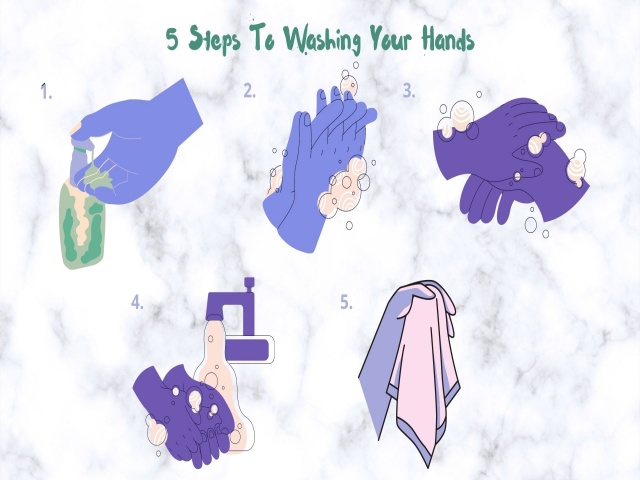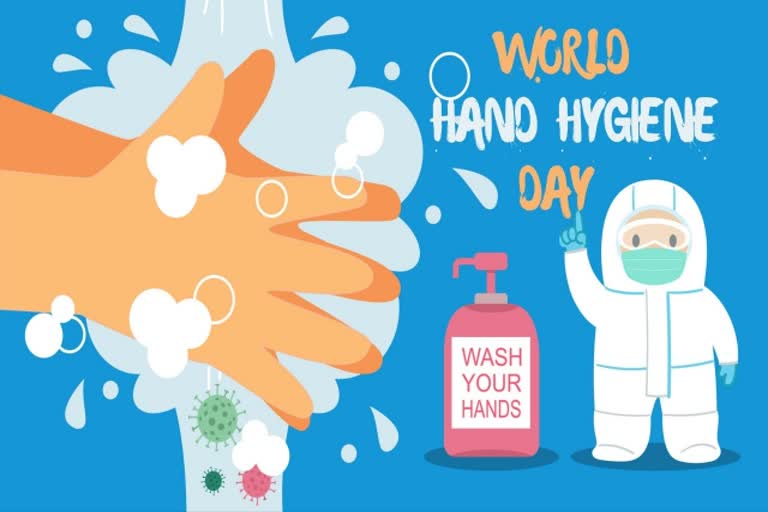Hand hygiene is one of the most talked-about topics since the onset of the COVID-19 pandemic around the world. Besides the pandemic too, maintaining proper hand hygiene is important. Therefore, to make people aware of its importance, every year on 5th May, World Hand Hygiene Day is observed and this year, the theme of the campaign is ‘Achieving hand hygiene at the point of care’ and the slogan is ‘Seconds save lives – clean your hands!’.
Amidst the pandemic situation this year as well, frequent hand washing can save people to a great extent from contracting the virus and reducing the spread of the virus. According to the World Health Organisation (WHO) stats, appropriate hand hygiene prevents up to 50% of avoidable infections acquired during health care delivery, including those affecting the health workforce.
Also, appropriate hand hygiene reduces the risk of SARS-CoV-2 - the virus that causes COVID-19 - infection among health workers.
Surprisingly, WHO also states that Despite its simplicity, hand hygiene is still poorly practiced in many health care facilities;
- 1 in 4 health care facilities do not have basic water services, which means that 1.8 billion people currently lack basic water services at their health care facility, while 712 million have no running water at their health care facility.
- 1 in 3 facilities lacks hand hygiene facilities at the point of care.
- Compliance with hand hygiene best practices is only around 9% during the care of critically ill patients in low-income countries.
- Levels of hand hygiene compliance for high-income countries rarely exceed 70%, calling for additional efforts to improve practices all over the world.
What Happens When You Wash Your Hands With Soap?
The Centers for Disease Control and Prevention (CDC) states that
handwashing education in the community:
- Reduces the number of people who get sick with diarrhea by 23-40%.
- Reduces diarrheal illness in people with weakened immune systems by 58%.
- Reduces respiratory illnesses, like colds, in the general population by 16-21%.
- Reduces absenteeism due to gastrointestinal illness in schoolchildren by 29-57%.
Hand washing is important because germs can spread if you touch your eyes, nose, or mouth, cook or eat food with unwashed hands. Touching contaminated surfaces or objects and not following a proper cough or respiratory hygiene and not washing hands immediately can also spread germs. Therefore, hand washing with soap and water is important.
5 Steps To Washing Your Hands

Here are 5 important steps to properly washing your hands with soap and water, as recommended by CDC;
- Wet your hands with clean, running water (warm or cold), turn off the tap, and apply soap.
- Lather your hands by rubbing them together with the soap. Be sure to lather the backs of your hands, between your fingers, and under your nails.
- Scrub your hands for at least 20 seconds. Need a timer? Hum the "Happy Birthday" song from beginning to end twice.
- Rinse your hands well under clean, running water.
- Dry your hands using a clean towel or air dry them.
Remember to turn off the faucet/tap once you wet your hands and while rubbing the soap to avoid unnecessary wastage of water. You may also turn off the faucet using a paper towel or tissue, once you have washed your hands.
Handwashing with soap and water is the best way to get rid of germs. However, if soap and water are not available, you can use an alcohol-based sanitizer with at least 60% alcohol. But one must remember that sanitizers may not remove harmful chemicals and may also not be very effective when the hands are visibly dirty. Thus, choosing soaps over sanitizers is the best option.




